Why You Should Learn SEO Yourself & Avoid Major Pitfalls
Teaching yourself SEO can seem daunting. Whether you’re just trying to understand the basics of optimizing content for search engines or attempting to develop the more advanced skills necessary to successfully compete against other popular sites in search results, knowing where to start the learning process can often be the hardest part.
The best way to learn SEO is by leveraging all of the SEO news, blogs, and information readily available for free on the web. Unfortunately, there are two big problems with learning SEO from all the resources available online:
1.) A good portion of the information is coming from biased or self-interested parties trying to get you to buy or utilize their services.
2.) A lot of the information available is based on rumors at best — and in the worst cases — complete misinformation
Below, I’ll teach you how to learn SEO yourself without bias or subjective information. But, better than just hearing my opinion, I’ll filter best practices for learning both basic and advanced SEO techniques through the experiences of veteran publisher, Vic Holtreman.
Vic recently spoke at Pubtelligence (at Google’s office in New York) about his experiences starting two insanely popular web properties from scratch by teaching himself SEO (ScreenRant.com and GameRant.com).
See Vic’s entire presentation, story, and advice to publishers live from Google here:
Where should you start learning about SEO?
Prior to starting ScreenRant.com, Vic had a number of different odd jobs. What I love about his story is that Vic started his site because he felt the content available on his topic “sucked”. He thought he could do better. This is honestly the most fundamental principle of all SEO regardless of what any expert will tell you.
Make great content and make it better than anyone else.

This is the exact advice that Google gives to websites of all; shapes and sizes. Veteran SEO professionals will roll their eyes at this generic advice, but this is absolutely true. The most important ranking factor for digital publishers and content creators hoping to write articles and have them found for top queries in search results is the content itself.
Google has done a lot better recently in providing specific documentation to webmasters around a very basic level of understanding about how to have their content discovered and indexed in Google search results. It really is the best place to start if you have absolutely no experience with SEO or website development.
With that in mind, the fundamentals of SEO — beyond having great content and making your site crawlable to search engines — can be a bit confusing. It is best to start with the right idea of what SEO looks like for digital publishers.
What is SEO for publishers?
- Ensuring that the content itself properly targets the things people are searching for it.
- Marketing and having content spread across the web.
- Building a website that visitors are objectively able to use and navigate easily.
- Reviewing content that has been created and using analytics to improve the site or content.
- Developing a website that is crawlable to search engines, adheres to simple best practices, and avoids unnecessary frills.
What SEO IS NOT:
- Technical tricks that only super-smart developers know.
- Keyword stuffing and finding clever ways to repeat things people might type into Google.
- Making a website that “looks” really good.
- Paying someone to do something that is probably too complicated for you to understand.
What are the best resources for learning SEO techniques?
While Google is a great place to learn how search engines crawl and index content, developing a better understanding of how search engines, like Google, actually rank that content is necessary to finding early success with SEO. While there are a lot of helpful blogs and news outlets, many pieces of information are outdated or based in false-premises. Following Google’s internal team on social media will provide an objective look at modern practices while also debunking salacious rumors; however, Google isn’t always a paramount place to gather advice on SEO.
An open list of all actual Google webmaster team members worth following:
Reading about emerging techniques from real, non-Google experts in the world of SEO is often of the best ways to get started.
Unfortunately, it can be difficult to separate the real experts from the phony ones.
While much of the information may seem “over your head”, the truth is that SEO is fast-moving. There are basics that are pretty easy to understand, but they almost always are better to understand in context to the modern search engine. Starting with a limited number of real experts, and information provided by them, can help you steer clear of misinformation.
Here is a list of credible blogs that offer great SEO articles. This is by no means an endorsement of the information on some of these blogs. In fact, many have published things that are flat-out wrong. However, collectively reading these resources will help you quickly understand what types of information will and won’t be helpful for you and what types of things actual SEOs focus on to improve their websites. Most of the writers for these sites are high-quality.
- SearchEngineLand
- Backlinko
- Moz Blog
- SEO By The Sea
- SEMRush Blog
- Search Engine Roundtable
- Search Engine Journal
- ahrefs Blog
- WebmasterWorld.com
- Unbounce Blog
- Sparktoro Blog
- Hubspot Blog
- ClickMinded
What are one or two things I should read to catch-up on SEO?
For a lot of publishers, all the blogs and resources feel like too much.
I am a big believer in teaching yourself SEO, but not everyone has the time to do it in a comprehensive fashion. But, don’t worry. In most cases, you don’t need to be an expert to kill it doing SEO.
There are almost no SEO professionals out there that can do a better job optimizing a site than a publisher, their content creators, or their internal team members could do if they taught themselves some fundamental SEO skills. That said, many are busy and often ask where they should start if they have limited time.
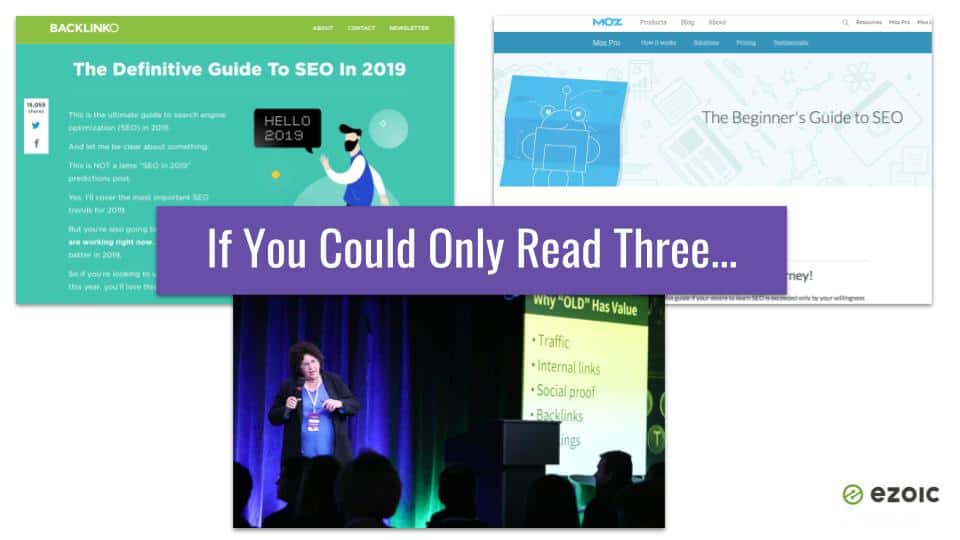
Below are three blogs I recommend:
- The Updated Moz Beginners Guide To SEO
- This original set of blogs were written by Moz founder, Rand Fishkin, and they helped launch their company. The updated version is just as good.
- The Backlinko 2019 SEO Guide
- Brian Dean doesn’t produce a lot of content, but when he does, it is usually first-class. This 2019 guide provides some really great objective data on what is worth paying attention to and what is worth ignoring.
- The SEO Study of Publisher, SmallBizTrends
- Any publisher with existing content should read this in-depth analysis of how SmallBizTrends tripled organic traffic and increased their ad revenue by 600% simply by updating content and make lots of small changes.
There are a lot of great resources out there, but these provide a nice spectrum of helpful knowledge for everyone at every level. The Moz blog is filled with basic content on how to perform simple SEO tasks and it is organized in a way that prioritizes importance.
The Backlinko blog has some great modern insights that can help everyone from SEO beginners to advanced pro’s.
Finally, the study of SmallBizTrends is a step-by-step guide of how one publisher dramatically increased their organic traffic and improved SEO using data and simple strategies that anyone can do.
What SEO lessons can we learn from Vic’s story?
Viz has an incredible story filled with the ups and downs that just about every type of publisher can relate to. Part of this includes his major problem with thin content and the early version of Google’s Panda update.
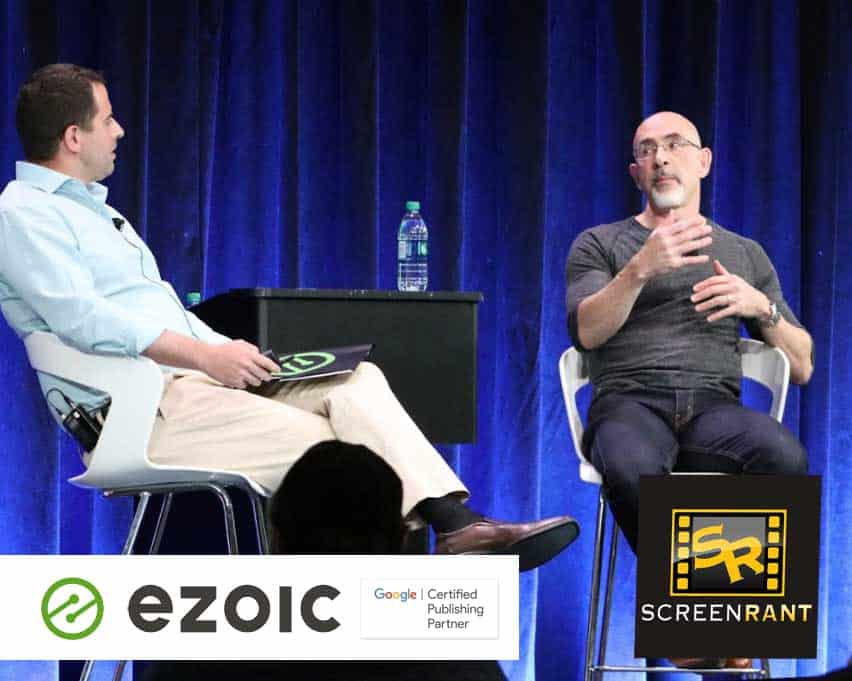
Here are the pitfalls Vic mentioned or learned from:
- Careful who you trust with SEO and content creation
- The issues Vic had with thin content nearly shuttered ScreenRant and GameRant. They were related to him empowering his content and editorial teams to produce content without his full review. When Google launched the Panda update, Vic realized his team had been creating lots of low-word-count, thin content. This dramatically impacted the business and forced Vic to revisit his SEO roots to get the business healthy.
- Write about what’s popular
- Vic mentioned that his writers always wanted to write about niche topics and indie films; however, these topics were only popular to a select number of visitors and didn’t have the mass appeal to generate long-term organic traffic. He even stopped visiting the Sundance film festival after he realized the content produced from attending couldn’t match the site’s content on topics like the latest Batman movie. Vic has stayed steadfast in his mission to write content that people actually search for.
- Treat it like a business and use real data
- Vic said this over and over again. At the end of the day, much of his content competed against bloggers and other movie fan websites. He says that these publishers were rarely looking at their data or their analytics. Vic let data on pageviews per visit, session duration, session earnings, and organic traffic growth drive the direction of his content and his website.
Should I pay someone to do SEO or learn it myself?
Vic and thousands upon thousands of other independent publisher have taught themselves SEO over the years.
My advice is that all independent publishers need to have some kind of firm grasp on basic SEO if they generate a portion of their traffic from search engines.
Paying someone externally to do “SEO” is a terrible investment in most cases. Without understanding SEO yourself, how will you even know if someone is focused on the right things or even doing a good job? In Vic’s case, he was unaware that he had content creators writing content that harmed his site. Imagine if an SEO person would have done the same thing for short-term gain?
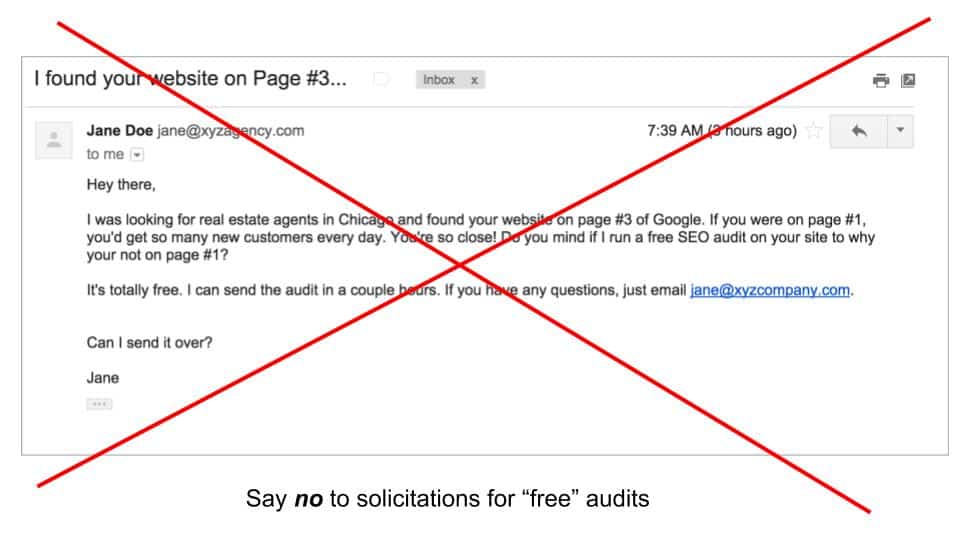
If you are willing to pay for an SEO consultant, you may be better off investing in a good internal resource that can also help with website marketing and content creation. These roles are often tied together and having an internal resource that cares about the overall health and performance of your business can be a lot more valuable long-term.
Need an “SEO audit”? Don’t pay for these. These can be easily conducted yourself or provided by free tools. Figuring out what to do with this information is what is actually valuable. In most cases, the information generated from audits is worthless. Much of it isn’t all that impactful or inherently actionable.
Often, “SEO experts” (I put it in quotes because it is such a broad group of people… many of which are unscrupulous) will churn out reports filled with recommendations that have very little credibility or substance behind them.
For example: site speed is a big flag on almost all reports now; however, there are almost no studies or suggesting average sites see any organic keyword ranking improvements from incremental increases in pagespeed. Yet, this is one of the most common recommendations from a lot of these consultants (as if there are a bunch of websites out there doubling traffic from shaving off a second from the website load time).
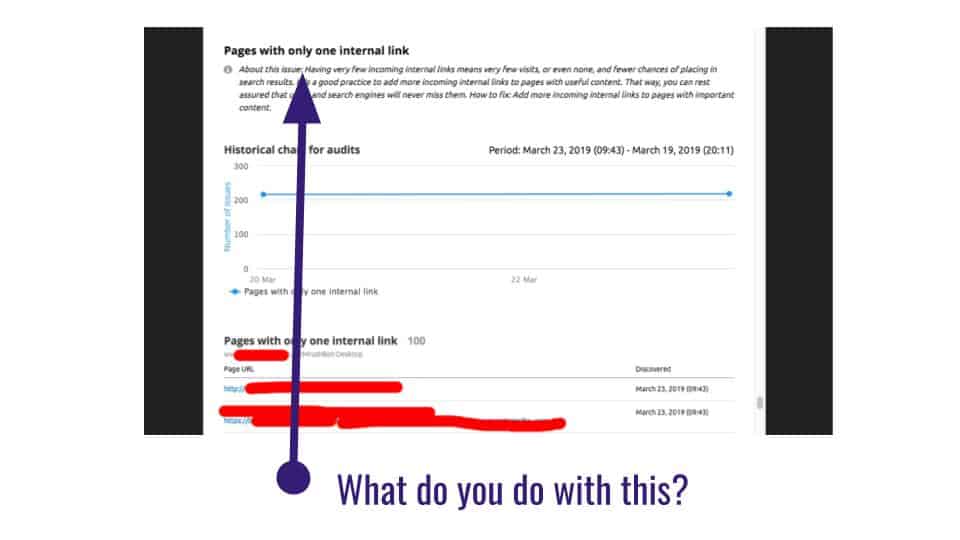
What’s more, often a lot of the information presented in SEO audits isn’t relevant. For example, often audits will tell you something about your site that is simply information without context, not something that is inherently good or bad. What are you supposed to do with that?
Even a basic level of understanding can help you avoid many of these SEO pitfalls; whether you elect to do it yourself or hire someone to help you. It is always best to know exactly what you want done prior to hiring someone to do it.
Improving your SEO education
The best way to learn about SEO is to take advantage of the free educational resources out there.
This blog and others like it have entire sections devoted to free SEO info. Even if you ultimately don’t want to do SEO yourself, improving your education will allow you to parse through potential employees or 3rd parties that may ultimately perform some SEO-related tasks for you in the future.
Questions, thoughts, comments? Leave them below.


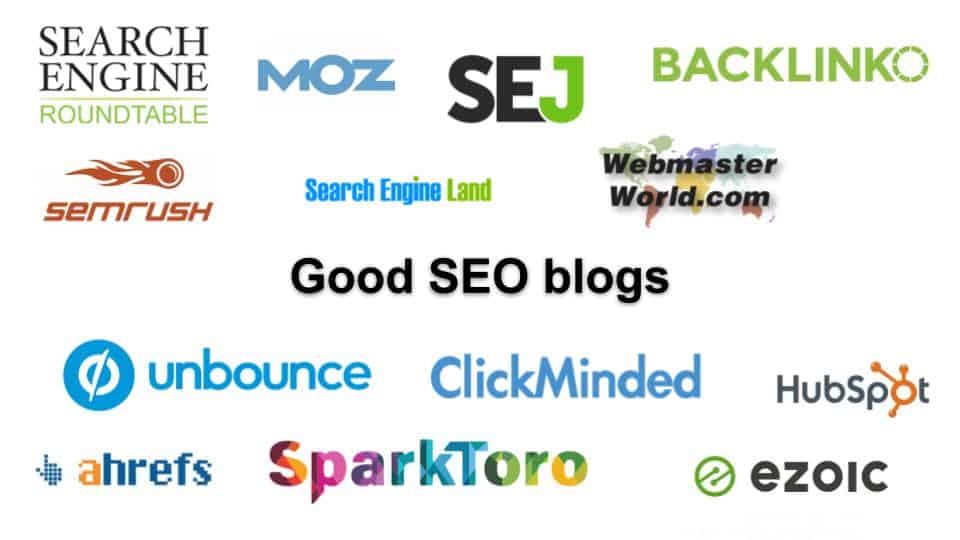
Many thanks for the article. It will be useful for readers not to repeat the mistakes of Viс.
Many thanks for the article. It will be useful for readers not to repeat the mistakes of Viс.
I agree with you, Tyler. Learn SEO and avoid major pitfalls.
I agree with you, Tyler. Learn SEO and avoid major pitfalls.
Great article! Fully agree with you.
Great article! Fully agree with you.
Thank you so much for this article
Thank you so much for this article
Not enough to learn SEO. Someone must practice it every day.
Not enough to learn SEO. Someone must practice it every day.
Thanks, its a very usefull Article
Thanks, its a very usefull Article
I agree learning seo would be beneficial for your company in the long run or atleast having in-house seo.
I agree learning seo would be beneficial for your company in the long run or atleast having in-house seo.